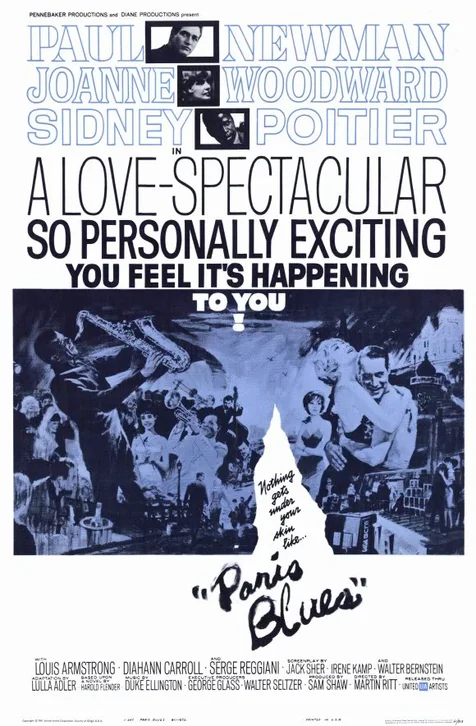"Autumn in Paris" (original "Un indien dans la ville," or "An Indian in the City" in French) is a 1994 French comedy film directed by Hervé Palud. While often remembered for its slapstick humor and fish-out-of-water premise, the film cleverly explores themes of cultural identity, familial responsibility, the clash between modern and traditional lifestyles, and the pursuit of artistic dreams, all wrapped in a heartwarming and often hilarious package. The story centers on Stéphane Marchadot, a successful but somewhat self-absorbed stockbroker living a fast-paced life in Paris, whose world is unexpectedly turned upside down by the arrival of his estranged son, Mimi-Siku, a young man raised in the Amazon rainforest.
Synopsis: From Parisian Broker to Unexpected Father
Stéphane (played by Thierry Lhermitte) is a man focused on career advancement and personal gain. He is divorced from Patricia (Miou-Miou), who left him years ago to live with a tribe in the Amazon rainforest. When Patricia informs Stéphane that she is remarrying and requires his signature for the legal proceedings, he reluctantly agrees to travel to South America. His intention is solely to obtain the necessary documents and return to Paris as quickly as possible.
However, Patricia has a hidden agenda. She believes that Mimi-Siku (Ludwig Briand), their 13-year-old son, needs to experience life with his father in Paris. She uses the marriage pretext to bring Mimi-Siku to Stéphane, essentially dropping him into his father’s lap with little warning. Stéphane is initially appalled by this sudden parental responsibility. He views Mimi-Siku as an inconvenience, a disruptive force in his carefully constructed life.
Mimi-Siku, accustomed to the simplicity and harmony of the Amazon, is utterly bewildered by the urban jungle of Paris. He arrives in the city dressed in traditional tribal clothing, armed with a blowpipe and a deep connection to nature. The contrast between Mimi-Siku’s innocent, nature-centric worldview and Stéphane’s materialistic, career-driven existence is the source of much of the film’s humor.
The film follows Mimi-Siku’s often chaotic and culturally jarring experiences as he navigates the complexities of Parisian life. He struggles to understand concepts like money, traffic, and technology. He innocently causes a series of mishaps, misunderstanding social cues and acting according to the customs of his tribe. He hunts pigeons in the park with his blowpipe, attempts to trade valuable items for seemingly worthless objects, and treats the city’s infrastructure as if it were part of the rainforest.
Stéphane’s attempts to control Mimi-Siku and assimilate him into Parisian society are consistently thwarted by the boy’s genuine confusion and unwavering adherence to his own cultural values. He tries to teach Mimi-Siku about finance and business, but the boy is more interested in connecting with the natural world, even in its limited form within the city.
As Stéphane spends more time with Mimi-Siku, he begins to see the world through his son’s eyes. He witnesses the absurdity of his own materialistic pursuits and the emptiness of his superficial relationships. He starts to appreciate the simplicity, honesty, and connection to nature that Mimi-Siku embodies.
The film also introduces other characters who are affected by Mimi-Siku’s presence. Richard (Patrick Timsit), Stéphane’s hapless colleague, becomes an unlikely confidante and accomplice in Mimi-Siku’s escapades. Charlotte (Arielle Dombasle), Stéphane’s sophisticated and somewhat shallow girlfriend, is initially repulsed by Mimi-Siku’s unconventional behavior but gradually begins to see his charm and genuine spirit.
One of the central plot points involves Mimi-Siku’s belief that he needs to find a "wife" in Paris to fulfill a tribal custom. He sets his sights on a young woman named Carole (Marie-Charlotte Leclaire), leading to a series of awkward and humorous encounters. This quest for a wife highlights the cultural differences between Mimi-Siku’s traditional upbringing and the more liberal attitudes of Parisian society.
As the film progresses, Stéphane undergoes a significant transformation. He begins to prioritize his relationship with Mimi-Siku over his career ambitions. He learns to appreciate the value of family, connection, and living in harmony with nature. He even starts to adopt some of Mimi-Siku’s more unconventional habits, much to the dismay of his colleagues and Charlotte.
The climax of the film involves a misunderstanding that leads to Mimi-Siku being taken away by social services. Stéphane, realizing how much his son means to him, embarks on a desperate mission to rescue him. He uses his newfound understanding of Mimi-Siku’s culture and his own resourcefulness to outsmart the authorities and reunite with his son.
The film concludes with Stéphane making a life-altering decision. He realizes that he cannot force Mimi-Siku to conform to Parisian society and that the boy’s true home is in the Amazon. He decides to leave his life in Paris behind and travel to South America with Mimi-Siku, embracing a simpler, more meaningful existence. He chooses family and connection over material wealth and career success, demonstrating the profound impact that Mimi-Siku has had on his life.
Themes and Significance:
-
Clash of Cultures: The film’s central theme revolves around the clash between Western and indigenous cultures. Mimi-Siku’s experiences in Paris highlight the vast differences in values, customs, and ways of life. The film uses humor to expose the absurdity of certain aspects of modern society and to celebrate the wisdom and simplicity of traditional cultures.
-
Identity and Belonging: Mimi-Siku’s journey is one of self-discovery and finding his place in the world. He grapples with his dual identity as both a member of an Amazonian tribe and the son of a Parisian stockbroker. The film suggests that true belonging comes from embracing one’s heritage and finding a connection to something larger than oneself.
-
Family and Responsibility: "Autumn in Paris" underscores the importance of family bonds and the responsibilities that come with parenthood. Stéphane’s transformation from a detached and self-centered individual to a caring and devoted father is a testament to the power of familial love.
-
Materialism vs. Simplicity: The film critiques the materialistic values of modern society and contrasts them with the simplicity and harmony of life in the Amazon. Stéphane’s initial obsession with wealth and status is ultimately replaced by a desire for a more meaningful and fulfilling existence.
-
Environmentalism: While not overtly preachy, the film subtly promotes environmental awareness by highlighting the importance of preserving natural habitats and respecting the environment. Mimi-Siku’s deep connection to nature serves as a reminder of the interconnectedness of all living things.
-
The Power of Perspective: Mimi-Siku’s arrival in Paris forces Stéphane and those around him to see the world from a different perspective. He challenges their assumptions, questions their values, and ultimately inspires them to live more authentically.
Conclusion:
"Autumn in Paris" is more than just a lighthearted comedy. It’s a film that uses humor to explore profound themes about culture, identity, family, and the meaning of life. While the slapstick antics and fish-out-of-water scenarios provide plenty of laughs, the film also offers a poignant commentary on the clash between modern and traditional lifestyles and the importance of finding balance and connection in a world that often feels disconnected. The film’s enduring appeal lies in its ability to entertain and enlighten, leaving audiences with a renewed appreciation for the simple things in life and the power of human connection. The journey of Stéphane and Mimi-Siku serves as a reminder that sometimes, the greatest adventures are found not in the pursuit of wealth or status, but in the embrace of family, culture, and the beauty of the natural world.


